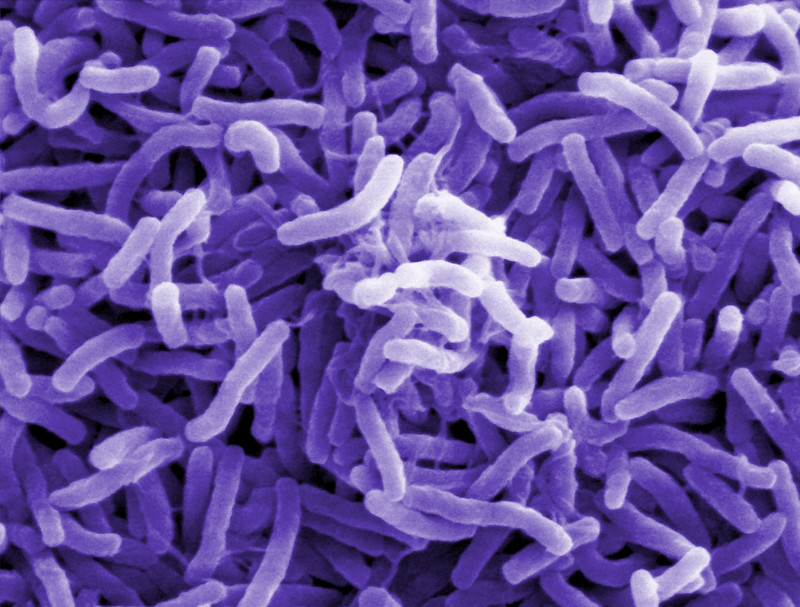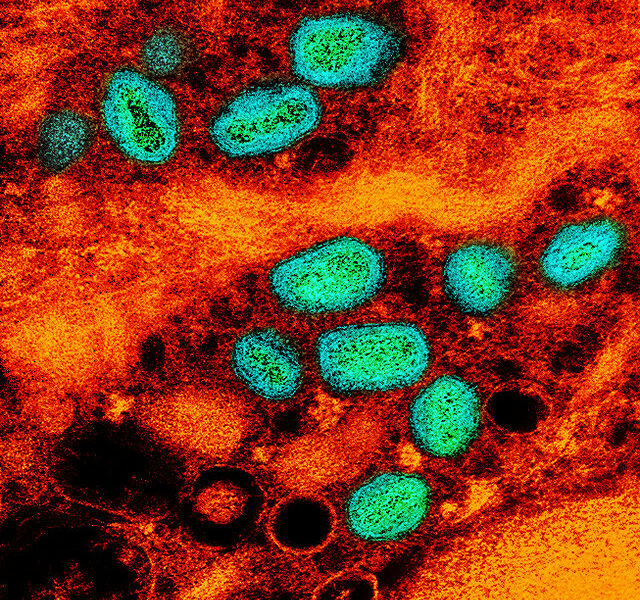By: Amelia Thyen
Photo courtesy of Vaccines at Sanofi; CC-BY-NC-ND.
After more than 3 years with no reported cases, cholera has re-emerged in Haiti, in part due to the displacement of thousands of Haitians from their homes due to civil unrest around the greater Port-Au-Prince area (1). The first case of cholera in Haiti this year was confirmed on October 2nd, and the waterborne disease has since spread rapidly primarily around the nation’s capital (1,3). The most updated counts from the Haiti Ministère de la Santé Publique et de la Population (MSPP) from November 5th have reported 5,829 suspected cases, 571 confirmed cases, and 120 deaths, with almost half of the cases reported among children (1). Cholera is a bacterial disease that is spread through water and food that is contaminated with feces (2). While the majority of people who become infected experience mild symptoms, 10% of those infected will develop more severe symptoms including diarrhea and vomiting (2). The rapid loss of body fluids can lead to severe dehydration and shock. In the case of severe symptoms, death can occur within hours if treatment is not sought (2). Symptoms often present 2-3 days after ingesting the cholera bacteria, but this incubation period can be as short as 12 hours or as long as 5 days (2). Oral rehydration and antibiotics are viable treatments if sought promptly; the case fatality rate is less than 1% among cholera patients treated promptly with rehydration (2). However the CDC reports that about 25%-50% of severe cholera cases are fatal when not given proper treatment (10).
Because cholera bacteria is spread primarily through consumption of infected water, communities that lack access to clean water are often at increased risk of exposure. The socio-economic conditions and humanitarian crisis leave the Haitian population at increased risk for cholera spread. A World Health Organization (WHO) risk assessment has identified over 24,000 people in the Port Au Prince area that are displaced from their homes due to gang violence (3). This displacement, combined with a general lack of safe drinking water and sanitation, has created a situation where these communities are at increased risk for cholera exposure and infection. Concerns are also rising around cholera spreading in Haiti’s overcrowded prisons. The largest prison in Haiti, located in Port Au Prince, has reported 21 deaths and close to 150 hospitalizations among prisoners (4). This population of displaced Haitians in the Port Au Prince area, as well as the prison populations, are at an elevated risk of cholera infection.
In addition to certain populations having increased risk of exposure due to their living situations and a lack of sanitation, there are also logistical issues with delivering medical supplies and humanitarian aid to the affected areas. A lack of fuel across the country has caused major logistical challenges. The main fuel ports in Haiti have been blocked by armed gangs for weeks now, which has left many healthcare facilities without electricity and has made it so that water delivery trucks are unable to distribute clean water to affected communities (1).
The WHO identified that the risk level of global cholera spread is low, however the regional risk level is moderate (3). A case of cholera was recently reported in neighboring Dominican Republic, but that case has since been found to be genetically linked to the lineage that caused the 2010 outbreak in Haiti, not the current outbreak (11). However, cholera cases linked to the current outbreak have been confirmed in other departments within Haiti: 9 confirmed cases in Artibonite and 34 confirmed cases in Centre, as well as 40 suspected cases in Nippes (11).
The social and political unrest in Haiti has also impacted the ability for health officials to administer tests and generate accurate case counts. The Pan American Health Organization suggests that case counts are likely much higher than the reported numbers; violence and civil unrest in the country likely undermine the quality of case reporting (4). Human Rights Watch reports that Médicins sans Frontières, UN agencies, and local/international nonprofits have started distributing aid and establishing cholera treatment facilities, but much more is needed to avoid a widespread cholera outbreak like Haiti experienced in 2010 (6).
Since the beginning of 2022, 29 countries across the world have reported outbreaks of cholera, which is a sharp increase from trends in the past 5 years (7). This increase in cases worldwide has caused a shift in vaccine distribution strategy from administering two doses to administering only one dose. This shift will allow more people to receive the vaccine in the short term, but little is known about the duration of protection with only one dose (7). The group responsible for global cholera vaccine strategy, the International Coordinating Group, will continue to monitor cholera case trends and the cholera vaccine stockpile, and will adjust recommendations accordingly (7).
Official case counts and reported deaths are being updated frequently, as this outbreak continues to expand in Haiti. You can find the weekly PAHO Situation Reports here: https://www.paho.org/en/cholera-outbreak-haiti-2022-situation-report and the daily Haiti MSPP Situation Reports here: https://www.mspp.gouv.ht/documentation/.
References:
- https://mspp.gouv.ht/site/downloads/Sitrep%20cholera_05_Novembre%202022.pdf
- https://www.cdc.gov/cholera/general/index.html#:~:text=A%20person%20can%20get%20cholera,of%20sewage%20and%20drinking%20water.
- https://www.who.int/emergencies/disease-outbreak-news/item/2022-DON415#:~:text=Description%20of%20the%20cases,au%2DPrince%20and%20Cit%C3%A9%20Soleil.
- https://apnews.com/article/health-prisons-caribbean-united-nations-port-au-prince-daa0ad4ba882fc67c7e5b1c4fa75cd68
- https://reliefweb.int/report/haiti/epidemiological-update-cholera-25-october-2022
- https://www.hrw.org/news/2022/10/18/haiti-urgently-address-cholera-outbreak
- https://www.who.int/news/item/19-10-2022-shortage-of-cholera-vaccines-leads-to-temporary-suspension-of-two-dose-strategy–as-cases-rise-worldwide
- https://www.paho.org/en/cholera-outbreak-haiti-2022-situation-report
- https://www.mspp.gouv.ht/documentation/
- https://www.cdc.gov/cholera/infection-sources.html
- https://www.paho.org/en/documents/cholera-outbreak-hispaniola-2022-situation-report-4


